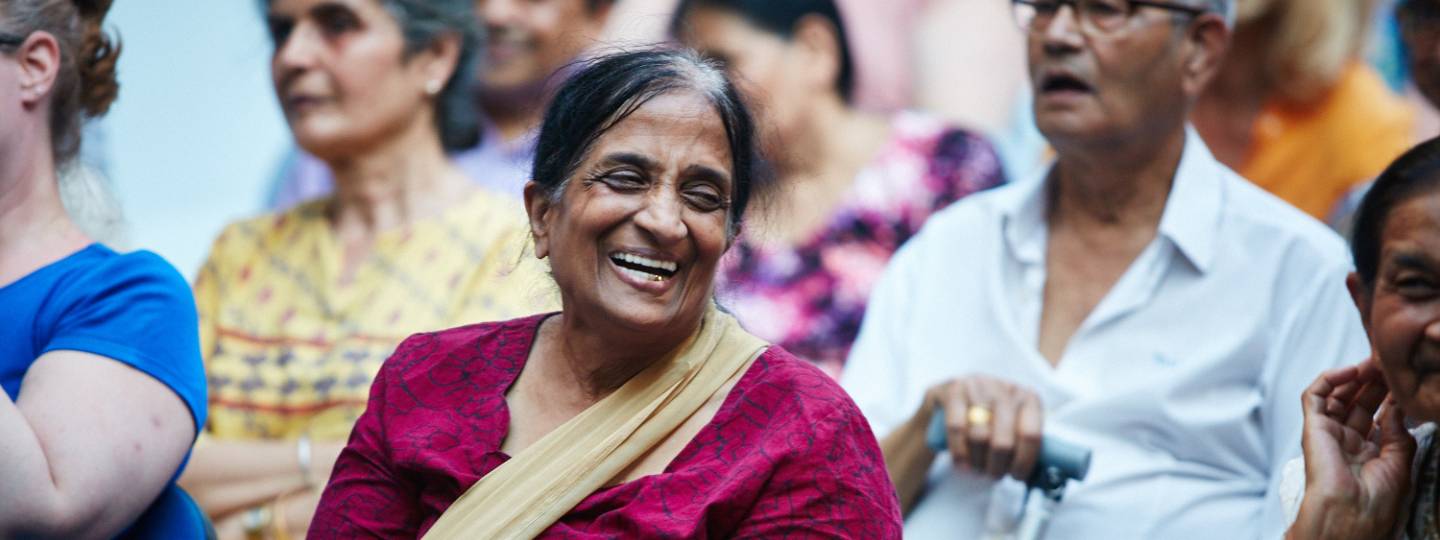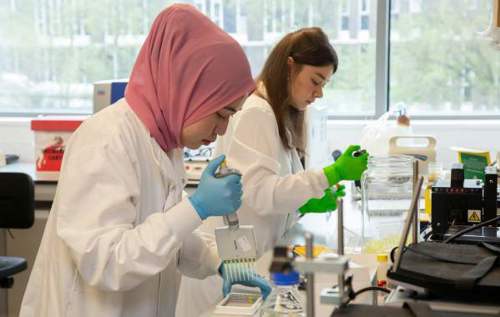Ask a researcher: how could mentorship help people with osteoarthritis and why is diversity important in research?
15 June 2023
 We won’t rest until everyone with arthritis has access to the treatments and support they need — and we want our research to be inclusive, so no one is left behind.
We won’t rest until everyone with arthritis has access to the treatments and support they need — and we want our research to be inclusive, so no one is left behind.
One of our researchers who is working tirelessly to make this a reality is Professor Gretl McHugh at the University of Leeds.
Why does diversity matter in research?
‘Diversity’ really matters in research. Without it, researchers may not discover why conditions affect some people more than others, the benefits and side effects of treatments on certain people, and ultimately, some people may be discriminated against.
Despite this, Gretl says it’s clear that over the last few years the research community simply wasn’t reaching certain groups in the UK. But she’s hoping to change this with her latest research.
“They were seldom heard and underserved both in engaging with research, but also as participants in research,” she explains. “But research is for everyone, and it's important that we get a diverse range of people.”
“It's important that we take on board their views, learn from them and really engage with them. [This ensures] that what we're planning to develop – whether it's an intervention, a treatment or a service – is what they really want and need.”
Newsletter
A peer-to-peer mentorship programme for people with osteoarthritis
Gretl’s ground-breaking research aims to create a peer-to-peer mentorship scheme for people with osteoarthritis.
Like a lot of research, this bright idea was first sparked by talking to people, like you, living with arthritis.
“A lot of the work we’ve done comes from ideas that members of the public have highlighted,” explains Gretl. “They said, ‘I would like a bit more social support’ or ‘I would like to talk to someone else who also has condition’ – and that's where we got the idea about peer mentorship from."
What is peer mentorship?

We know that when you’re dealing with pain and fatigue, sometimes you just want to speak with someone who understands and has been in your shoes. This is what peer mentorship is all about.
In her study, Gretl and her team will train people living with osteoarthritis to become volunteer ‘peer mentors’. They’ll then support others, living with osteoarthritis, to work towards their goals.
“It's important that we note what might have worked for one individual, may not work for another,” says Gretl. “So, it’s up to the peer mentor and mentee to set a goal and work together to achieve it. For example, it might be trying to exercise more or to walk further distances.”
“We hope it will be a benefit to people in managing their osteoarthritis, that it reduces musculoskeletal inequalities, and improves the care of people with osteoarthritis. Hopefully, it will potentially reduce the burden on our overstretched health services if people are able to self-manage more effectively too.”
Research achievements
Health inequalities: what barriers do people with arthritis face?
Everyone deserves to get the support they need to live well with arthritis. But the reality is, some people face barriers that can affect the care and treatment that’s available to them.
These unfair and avoidable differences in health are sometimes called health inequalities.
We know that health inequalities deeply affect people with arthritis. For example, if you live in an area of greater poverty, you’re more likely to have arthritis — and this is something Gretl discovered in past research too.
“We found that there was a lot of variation in what kind of services... as well as what treatments were provided for people with chronic pain,” she explains. “What people received often depended on where they lived in the United Kingdom."
“We know from evidence that the rates of hip and knee osteoarthritis are higher, and the impact is greater among those neighbourhoods that have high levels of socioeconomic disadvantage.”
For that reason, Gretl and her team particularly want to support people who might identify as socioeconomically disadvantaged.
What is socioeconomic disadvantage?
“It is difficult to define and can mean different things to different people,” says Gretl. “But you might feel you’re disadvantaged because of your finances, education or social circumstances.”
It's deeply personal and people’s circumstances can change. For that reason, Gretl says there’s no criteria you need to tick off to say your socioeconomically disadvantaged to take part. You simply have to say, ‘yes’ to the question ‘do you feel socioeconomically disadvantaged?’
Why are rates of osteoarthritis more common among people who are socioeconomically disadvantaged?
There are a lot of reasons.
“People with certain manual jobs have an increased risk of osteoarthritis,” explains Gretl, “In addition, obesity is more common among people who are experiencing socioeconomic disadvantage, and obesity increases the risk of osteoarthritis.”
“We also know that people living in neighbourhoods with high levels of deprivation, face barriers to accessing health services and experience health inequalities too.”
Because of these inequalities, Gretl says that it’s vital “to engage and work with people with osteoarthritis who are experiencing socioeconomic disadvantage to find out what will help them manage their osteoarthritis.”
Get involved
Supporting the next generation of researchers

We're co-funding Gretl’s groundbreaking study alongside Nuffield Foundation’s Oliver Bird Fund. “There’s so much support provided by Versus Arthritis,” says Gretl. “Versus Arthritis’ research focuses on what is important to people living with musculoskeletal conditions."
"This funding also helps support the next generation of researchers who are already making a difference to people living with arthritis, and will continue to do so."
On top of her role as a researcher Gretl is also Co-Chair of the Versus Arthritis Fellowship Expert Committee, which helps us organise our fellowship awards.
Fellowships support researchers at the start of their careers who want to get stuck into musculoskeletal research.
“We're focusing on supporting and developing the next generation of musculoskeletal researchers, which is vital for the future of musculoskeletal research, and in improving the care, treatments and services for people with arthritis,” says Gretl.